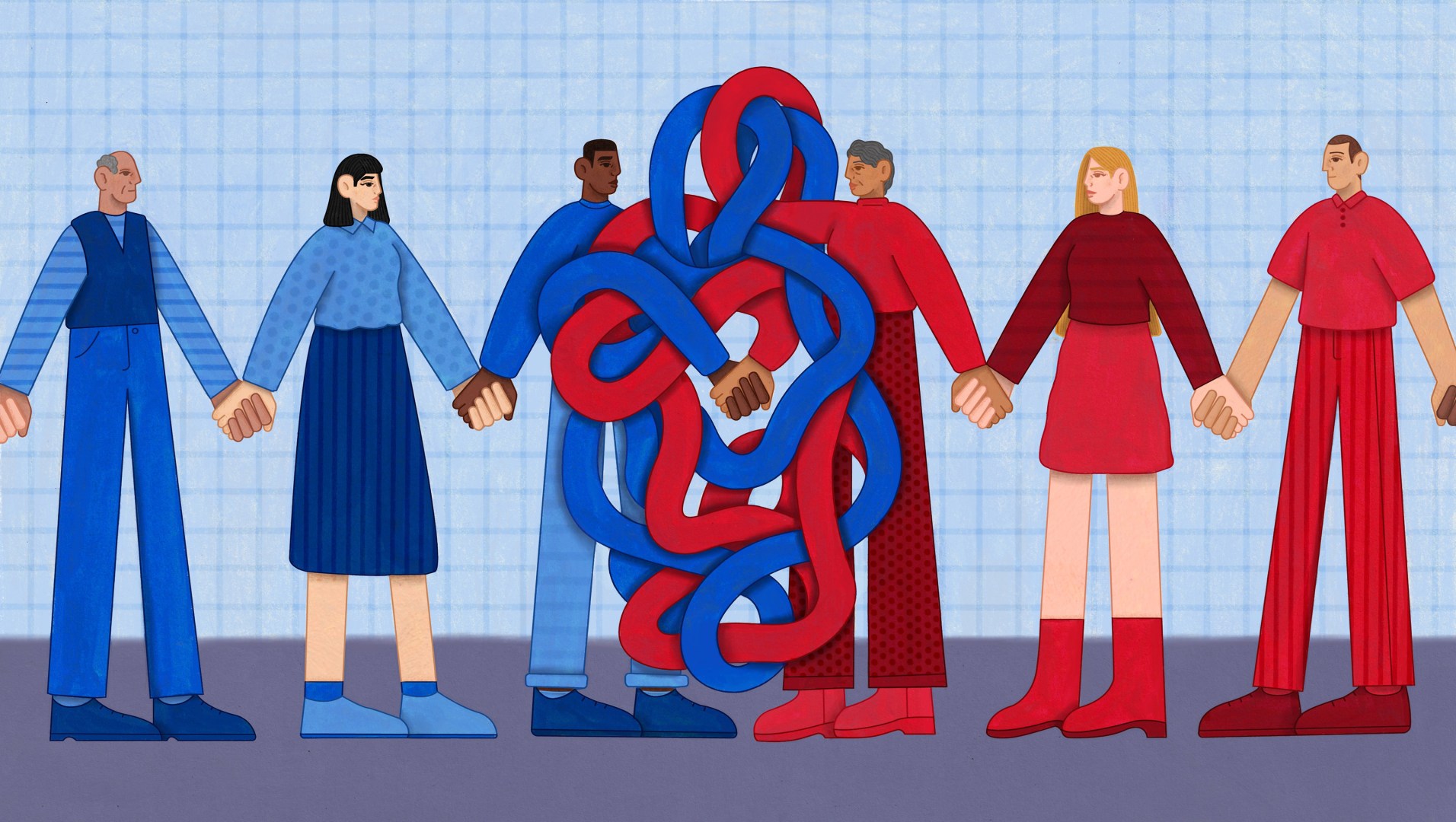It is too banal to say that the 2020 election is dividing American evangelicals. We’ve always been politically divided, which some of us see as a strength of a renewal movement transcending electoral politics. No, the 2020 election has beaten and broken American evangelicals, not so much divided as dismembered. We’re tired of the election but even more tired of each other. And it’s going to get worse in the coming weeks.
In 2016, longstanding animus toward Hillary Clinton explained much of the exit poll data about white evangelicals who voted for Donald Trump. This year, a significant uptick of self-described white evangelicals is voting enthusiastically for Trump and not merely against the alternative. For many, the vote is a referendum not simply on convictions on abortion or racial injustice but on whether you really are a Christian. As pastor John MacArthur says he told Trump, “Any real, true believer is going to be on your side in this election.” Conversely, many Christian opponents of Trump see the pastors and ministry leaders who support him as idolaters at best, and more likely frauds.
Now is not the time to revisit exit polls or debate the designation evangelical, but we do expect a fresh round of believers to see the data and say, “If that’s what evangelical means, I’m not it.” Today’s American Christian flips Amos 3:3’s question, “Can two walk together except they be agreed?” and asks: “Why would I want to walk together with them?”
It is not cowardly “bothsidesism” to call us, of myriad political convictions, to repent of bitterness. True, the Bible’s warnings against anger have been wrongly used by the powerful to silence calls for justice. But it’s hard to open your Bible without hitting a command to put away bitterness and wrath. Let us start there.
Let us not end there. Nor let us settle for a call to civility. This magazine has a long history of arguing that Christians should match their moral clarity with civility. We still believe it. But civility is insufficient. As Christians, we are commanded to love: to love each other, to love our enemies, and to love our enemies when they are “each other.”
Love, Paul tells us, “keeps no record of wrongs” (1 Cor. 13:5). But love does stand up against them. Jeremiah contends that we cannot dress deep and ghastly wounds as though they are scratches, saying, “Peace! Peace!” when there is no peace (6:14). As Martin Luther King Jr. put it, “Love that does not satisfy justice is no love at all. It is merely a sentimental affection, little more than what one would have for a pet. Love at its best is justice concretized.” And “justice at its best,” he said, “is love correcting everything that stands against love.”
So love means that we should unselfishly warn against idolatry, apostasy, injustice, and those things that endanger body and soul (even as we are careful not to throw around such accusations lightly). It even means we don’t have to think that everyone who calls themselves a Christian really is one. “Watch out for false prophets,” Jesus warned. “They come to you in sheep’s clothing, but inwardly they are ferocious wolves. By their fruit you will recognize them” (Matt. 7:15–16). Not that there’s a need to go false prophet hunting. The enemy will sow weeds among the wheat, Jesus promised (13:24–29). It’s not the servants’ job to pull them up, he said; we’re not able to separate the weeds from the wheat. Leave that to Jesus.
Still, some of us can’t help but try to rid our field of weeds and leave only lovable, “real, true believers”—despite Jesus’ warning that this harms the people of his kingdom. Others are tempted to leave the field of evangelical Protestantism altogether and look for greener grass—some pristine, weedless field. They’re tired of waiting for the sower’s sickle. Like Jonah, so outraged by idolatry and wickedness that he’d rather flee than love, we’d rather see Ninevah’s destruction than its redemption. God hates injustice. God hates racism. God hates abortion. And yet God’s question to us is the same as to the self-appointed weeder and to Jonah when his plant died: “Do you do well to be angry?” (4:9, ESV). Is your anger leading toward love or away from it?
Ted Olsen is editorial director of Christianity Today.
We’d love to read your thoughts about this editorial. How are you struggling with love and justice this election season?










